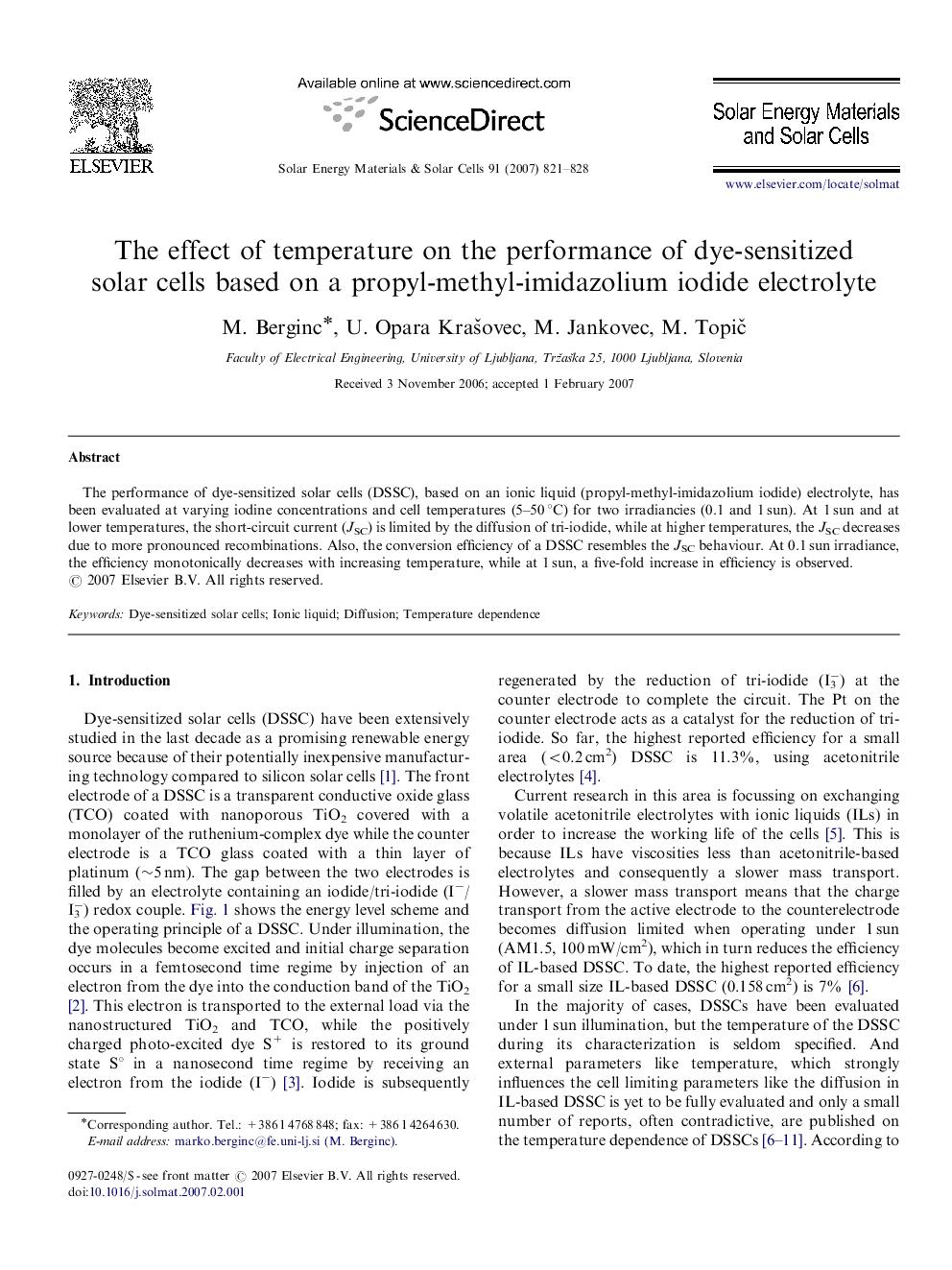| Article ID | Journal | Published Year | Pages | File Type |
|---|---|---|---|---|
| 81162 | Solar Energy Materials and Solar Cells | 2007 | 8 Pages |
Abstract
The performance of dye-sensitized solar cells (DSSC), based on an ionic liquid (propyl-methyl-imidazolium iodide) electrolyte, has been evaluated at varying iodine concentrations and cell temperatures (5–50 °C) for two irradiancies (0.1 and 1 sun). At 1 sun and at lower temperatures, the short-circuit current (JSC) is limited by the diffusion of tri-iodide, while at higher temperatures, the JSC decreases due to more pronounced recombinations. Also, the conversion efficiency of a DSSC resembles the JSC behaviour. At 0.1 sun irradiance, the efficiency monotonically decreases with increasing temperature, while at 1 sun, a five-fold increase in efficiency is observed.
Related Topics
Physical Sciences and Engineering
Chemical Engineering
Catalysis
Authors
M. Berginc, U. Opara Krašovec, M. Jankovec, M. Topič,
